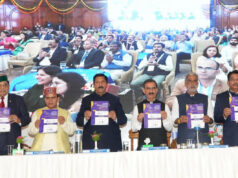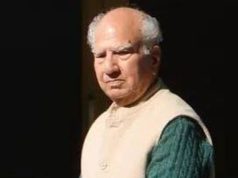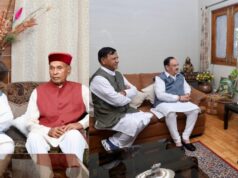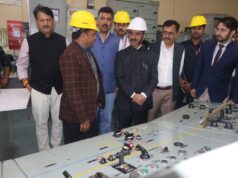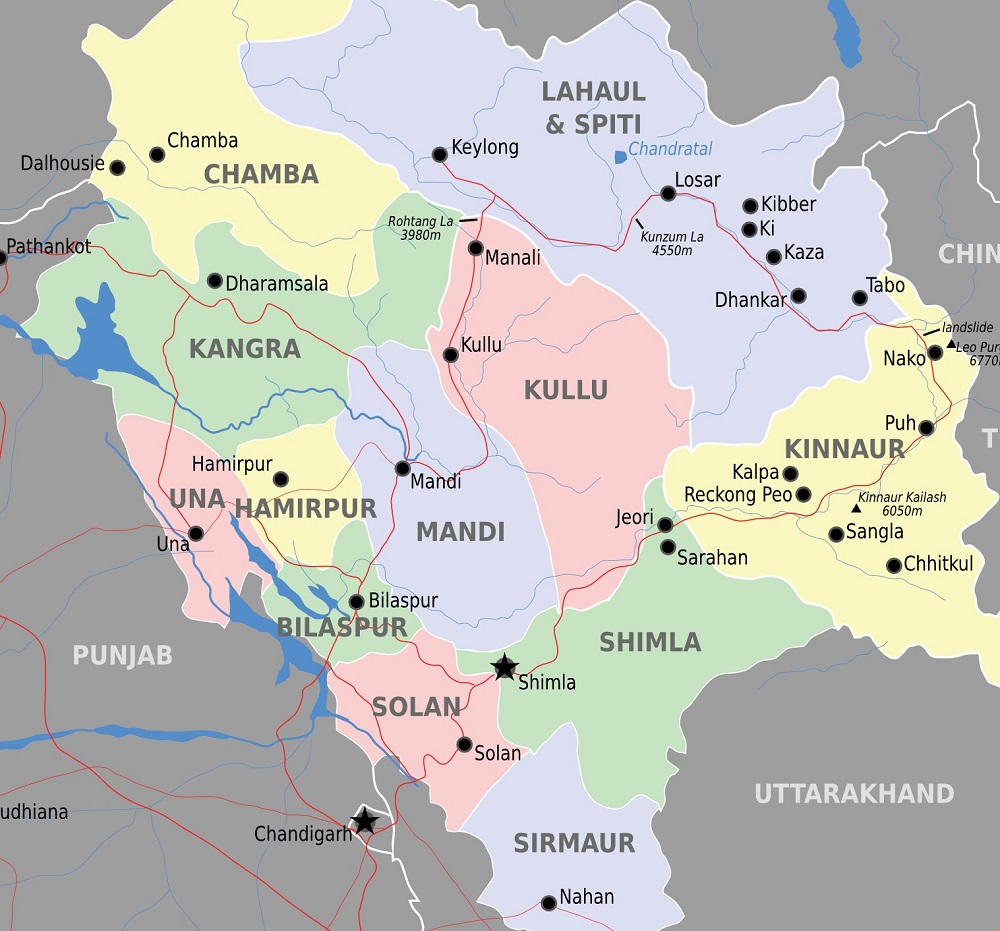Former Himachal Pradesh Chief Minister Shanta Kumar has sharply criticized the Central Government’s neutral stance on the ongoing dispute over the Shanan Hydro Power Project, calling it “unjust and unacceptable.” The project, located in Jogindernagar, Mandi district, has been under Punjab’s control for decades, but its lease agreement with Himachal Pradesh expired in March this year. Despite this, Punjab has continued to claim ownership, prompting a legal battle between the two states. Shanta Kumar urged Prime Minister Narendra Modi to intervene directly, saying that Himachal Pradesh deserves rightful ownership of the project as per the provisions of the States Reorganisation Act, 1966.
In a statement, Shanta Kumar expressed disappointment over Union Power Minister Manohar Lal Khattar’s recent remark that the Central Government would remain neutral in the dispute. “This neutrality is misplaced and hurts the interests of smaller states like Himachal Pradesh,” Kumar said, stressing that the Centre’s involvement is crucial to ensuring fairness in the distribution of resources between states. He pointed out that Himachal, despite being home to many of the country’s major hydropower assets, has often been sidelined in resource allocation due to its limited political representation.
The Shanan Hydro Power Project, Asia’s oldest hydroelectric station, was commissioned in 1932 by British engineer Col. B.C. Batty. Though located in Himachal Pradesh, it has remained under the control of the Punjab Government. The initial 99-year lease, signed between the British administration and the Maharaja of Mandi, expired in March 2024, sparking renewed calls from Himachal Pradesh for the return of the project.
Shanta Kumar noted that the 1966 States Reorganisation Act, which reorganized Punjab, Haryana, and Himachal Pradesh, clearly stated that resources and assets should be fairly redistributed between the newly formed states. While other assets were divided, the Shanan project remained under Punjab’s control despite being located in Himachal territory. Kumar argued that this was an oversight that has deprived Himachal of its rightful claim for decades.
Shanta Kumar recalled how, during his tenure as Chief Minister in 1977, he had taken up the issue with then Prime Minister Morarji Desai, seeking justice for Himachal Pradesh. Despite continued efforts and protests in Delhi, the project remained in Punjab’s hands. He emphasized that the 1966 Act was intended to rectify such imbalances, but the Shanan Power Project remained an exception, symbolizing the injustice Himachal has faced in securing its rightful share of resources.
The former Chief Minister drew parallels with the Bhakra Beas Management Board (BBMB) projects, where Himachal Pradesh had to fight a long legal battle to secure its due share of electricity generated from projects located within the state. He said the current dispute over the Shanan project is yet another instance of Himachal’s struggle to reclaim its resources from more politically powerful states.
Legal Battle Intensifies Over Shana Power Project
Since the lease expired, Punjab has taken the matter to the Supreme Court, seeking to retain control over the Shanan Hydro Power Project. In response, the Himachal Pradesh Government has engaged top legal experts to fight the case in court. Shanta Kumar praised the state government’s efforts, noting that the legal battle is crucial for the state’s future, but warned that legal proceedings alone may not be sufficient without the support of the Central Government.
Shanta Kumar further stressed that Himachal Pradesh, being a small state with only four MPs in the Lok Sabha, often finds its voice drowned out by larger states like Punjab. “Our state is rich in natural resources but politically weak. We need the Central Government to step in and ensure justice is done,” he said. Kumar highlighted that this issue is not just about electricity or revenue but about correcting a longstanding imbalance in the federal structure.
Significance of the Shanan Project
The Shanan Hydro Power Project holds both historical and economic significance for Himachal Pradesh. With a generation capacity of 110 MW, the project has been a valuable asset for Punjab’s energy supply. However, for Himachal Pradesh, reclaiming the project means more than just gaining control of an energy resource—it represents an opportunity for the state to assert its rightful ownership of resources within its borders.
Moreover, the project symbolizes a broader struggle for equity between larger, politically influential states and smaller, resource-rich states like Himachal. For decades, Himachal Pradesh has contributed significantly to the nation’s energy security by hosting major hydropower projects, but it has often been deprived of the benefits these projects generate.
The Central Government’s Role
Shanta Kumar’s criticism of the Central Government’s neutral stance highlights the frustration felt by many in Himachal Pradesh. For a state that has long battled for recognition and fairness in resource allocation, the Central Government’s decision to remain neutral feels like a betrayal. “Neutrality in this case is not just inaction—it is a continuation of the injustice that Himachal Pradesh has faced for decades,” Kumar said.
He called on Prime Minister Modi to take a decisive stand, arguing that the Centre’s intervention is necessary to ensure a fair resolution to the dispute. Without it, Himachal Pradesh could once again be left without control of a major asset within its territory.
As the legal battle over the Shanan Hydro Power Project continues, the dispute remains a critical test of resource distribution and federal fairness in India. Shanta Kumar’s call for action serves as a reminder that smaller states like Himachal Pradesh often face significant challenges in securing their rightful share of resources, especially when pitted against larger, more influential states.
For now, the future of the Shanan project remains uncertain, with both states awaiting the Supreme Court’s verdict. However, Shanta Kumar’s firm stand underscores the broader need for the Central Government to play a more active role in resolving such disputes, ensuring that justice is not only done but also seen to be done.


